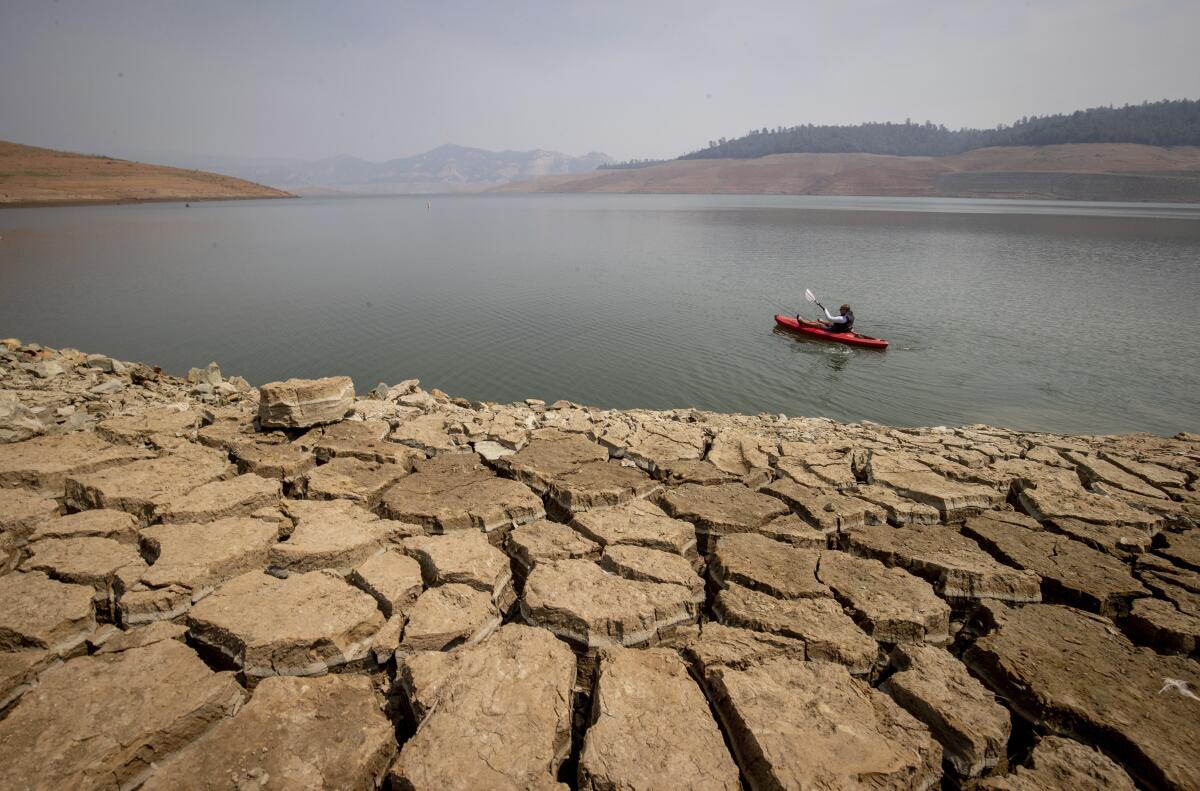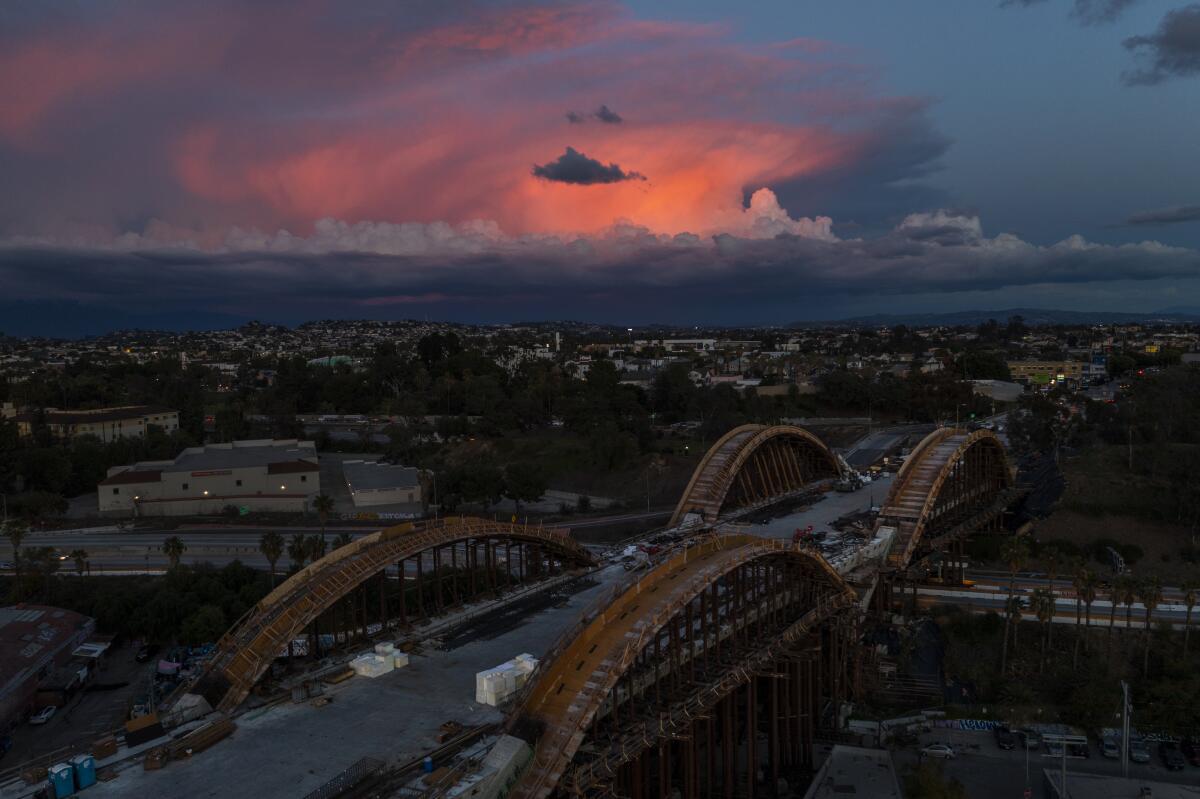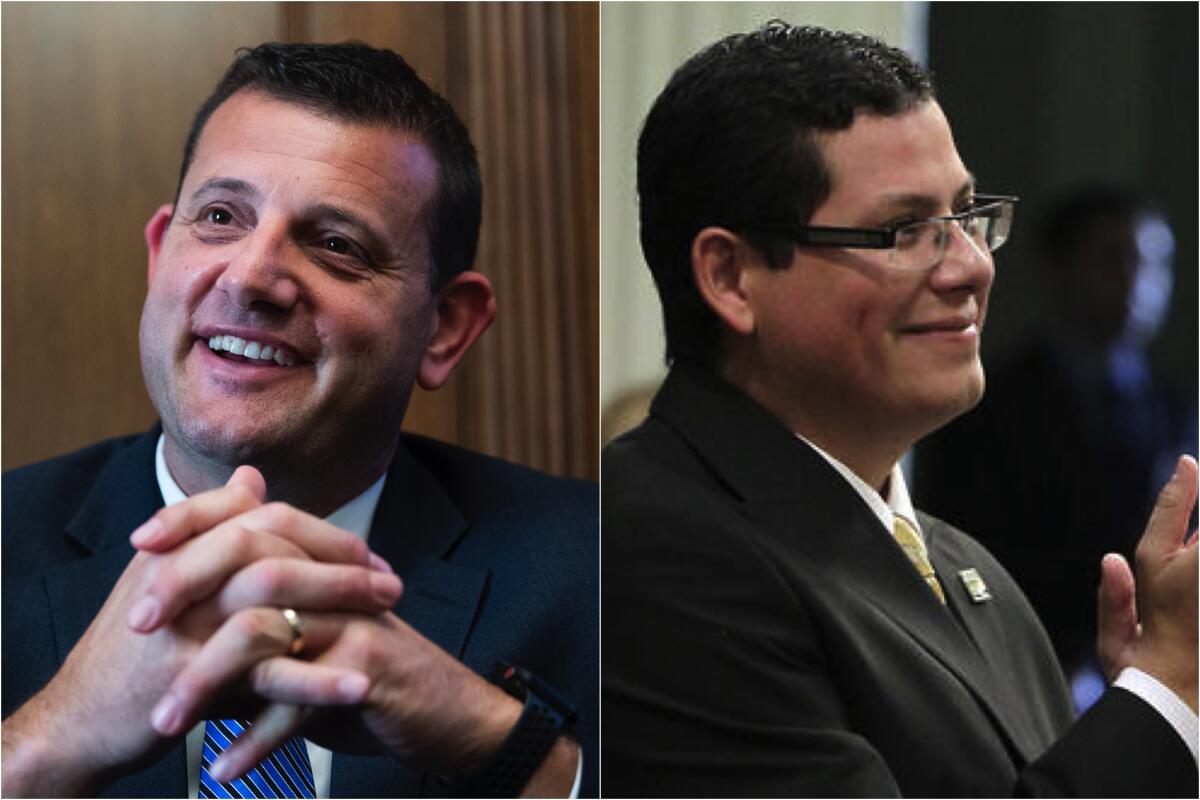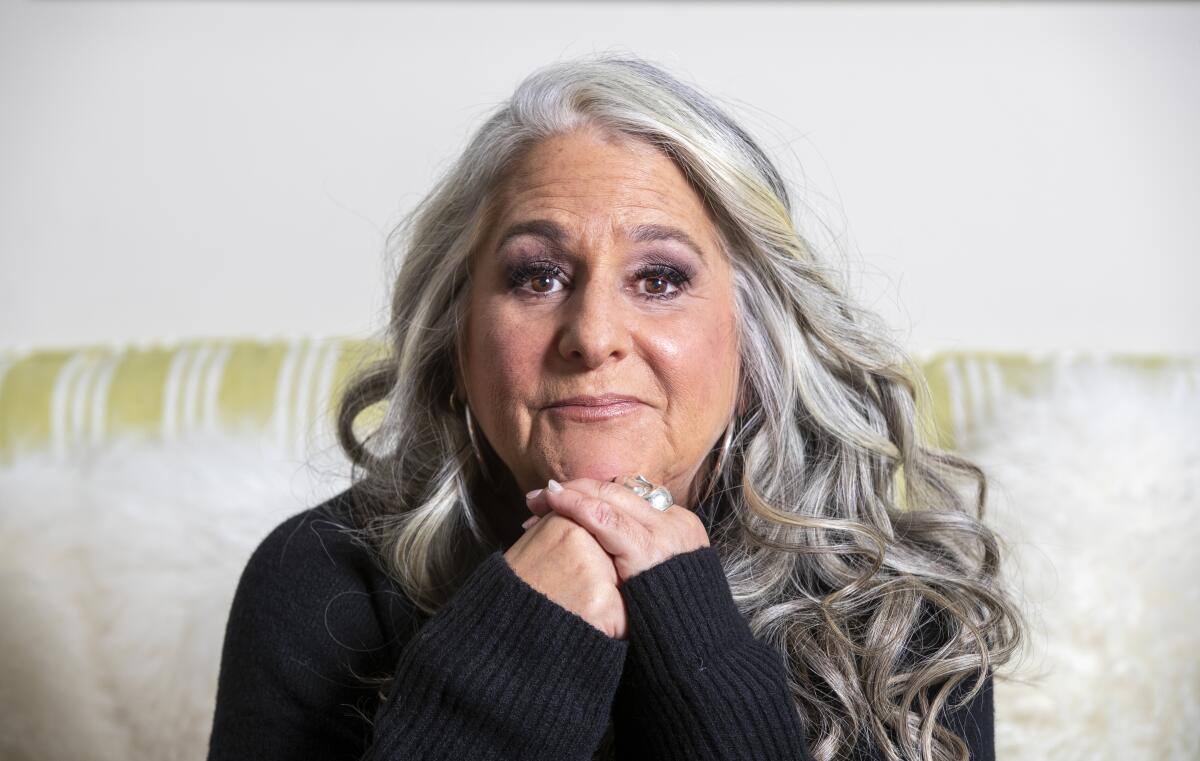What aridification, the ‘great drying,’ means to California and the West

Good morning, and welcome to the Essential California newsletter. It’s Thursday, June 30. I’m state enterprise reporter Jim Rainey, checking in from the San Gabriel Valley.
Those pictures of glorified puddles that used to be Lake Mead and Lake Oroville should have gotten your attention by now. If they didn’t, maybe a frightening new term will — “aridification.”
That’s what scientists are calling the intense warming and dryness besetting California and the West. My colleague Hayley Smith has a thorough accounting of the impacts of this uber-drought: including loss of water for wild creatures, like spawning salmon and migrating birds, and for human beings, to grow food, drink and bathe.
There have been periods of high atmospheric carbon dioxide in the past, but the pace of the current warming and drying is unlike anything ever experienced, according to Jessica Tierney, a professor at the University of Arizona who studies past climates.
“Ecosystems, living things, don’t have time to adjust when you change CO2 as fast as we’re changing it, and the geological record tells us that humans are changing CO2 faster than anything that we know about in the last 66 million years,” said Tierney, adding that “our entire society was built under CO2 of just a little bit under 300 parts per million.”
Carbon dioxide levels in the atmosphere last year surpassed 419 parts per million. Gulp.
The experts said humans should be able to adapt, but only with serious changes in behavior. Our story looks at some of the measures that have begun.
“If the state says the drought is over, act like it’s not,” said Matthew Kirby, a paleoclimatologist and professor at California State University Fullerton. “We’re doing a good job, but we need to live under a permanent state of water conservation because water is the final frontier — especially with the aridification in the western United States.”
[Read the story: “Fears grow that extreme drought, heat will permanently scar California climate, social fabric”]
And now, here’s what’s happening across California:
Note: Some of the sites we link to may limit the number of stories you can access without subscribing.
L.A. STORIES
Los Angeles is less than two weeks away from a celebration of what seems destined to become one of the city’s architectural wonders — the rebuilt 6th Street Viaduct, connecting downtown with Boyle Heights.
The leaping, undulating arches that define the replacement for the old 6th Street Bridge have been compared to a serpent or ocean waves. Times columnist Carolina Miranda appears to be charmed. She’s got the scoop on architect Michael Maltzan, who designed the new span, and the hopes he has for literally and figuratively knitting the city closer together.
The design nods to the historic bridge, the setting for countless movie scenes, cop shows and television commercials. The viaduct also offers “something daringly new,” Miranda reports, with its 10 pairs of arches, spread over more than half a mile. “Imagine the ebullient pattern left by a bouncing ball or a rock skipping across water,” Miranda writes.
The bridge also includes protected bike lanes and pedestrian areas to make it more than a cars-only artery. A community celebration is scheduled for July 9 and 10, after which the bridge will be officially open for business.
Our critic enjoys a brilliant white tone that the architect uses to convey “lightness and optimism.” Adds Miranda: “A good way of describing the ebullient forms of the viaduct — a structure that connects downtown to points east, as well as L.A.’s past with its future.”

Our daily news podcast
If you’re a fan of this newsletter, you’ll love our daily podcast “The Times,” hosted every weekday by columnist Gustavo Arellano, along with reporters from across our newsroom. Go beyond the headlines. Download and listen on our App, subscribe on Apple Podcasts and follow on Spotify.
POLITICS AND GOVERNMENT
United States Rep. David Valadao is the rare Republican who challenged Donald Trump — voting for the former president’s impeachment — and lived (politically speaking) to tell about it. For now.
Valadao survived this month’s primary and will face Assemblymember Rudy Salas, a moderate Democrat, in the November contest to represent the 22nd Congressional District, which includes parts of Kern, Kings and Tulare counties.
Valadao would have faced a stiffer challenge if Trump had campaigned against him, or endorsed another Republican. But the former president chose to sit this contest out.
Now, my colleague Seema Mehta explains, Valadao faces a tough showdown with Salas. The region is increasingly taking on more Democratic voters, and the 22nd District now shows a 17-point voter registration edge for Dems. The race is expected to be one of the nation’s most hotly contested, as Republicans try to win control of the House.

A scarcity of affordable housing and the attendant landlord-tenant struggles are hallmarks of life in 21st century California. Tenants scored a victory in their contests with building owners this week when a federal appeals court upheld a state law requiring a property owner who legally evicts a tenant to pay one month of the tenant’s rent in order to reduce the costs of relocation.
The law, which took effect in 2020, limited rent increases in areas without rent control to 10% a year. It also provided financial aid to evicted renters by requiring owners to either repay a month’s rent or cancel a final month’s payment.
A lawsuit by the owners’ group Better Housing for Long Beach accused the state of unconstitutionally confiscating their property by requiring the payments. But as the suit was pending the Ninth U.S. Circuit Court of Appeals upheld an Oakland ordinance requiring property owners to pay all of a legally evicted tenant’s relocation costs. San Francisco, San Jose and Los Angeles have similar laws.
In upholding the state law, the court said California is not confiscating private property, just requiring assistance by owners who made the decisions to rent the residence and later to evict the renters. The owners have not decided whether to appeal.
CRIME, COURTS AND POLICING
The pain and anguish over the killing of two El Monte police officers is not likely to be relieved any time soon. Officer Joseph Santana and his training officer, Cpl. Michael Paredes, will be laid to rest today in the city they served.
The what-ifs in the case only grew this week with the revelations by The Times that the Los Angeles County Probation Department received warnings that the man who shot the officers, Justin Flores, was abusing drugs, armed with a gun and had beaten a woman he was romantically involved with. But the authorities did nothing to intervene before Flores shot and killed the two officers after they responded to a domestic violence report at a motel in a crime-plagued part of the city.
L.A. Times crime experts Richard Winton and James Queally spoke to law enforcement sources and reviewed records that suggested Flores — a gang member and serial criminal offender — should have been taken into custody before he opened fire on June 14. Law enforcement insiders told The Times that the failure to check in on Flores may be part of a wider problem, in which probation officers have decreased meetings with former inmates during the COVID pandemic.
L.A. County Supervisor Hilda Solis has asked the county Office of the Inspector General and the civilian Probation Oversight Commission to investigate the probation department’s handling of Flores’ case in the months leading up to the killings.

He was the prototypical, hardworking immigrant: a Korean-born businessman who hardly ever took a day off as he made a living as an electric contractor and laundromat operator. Only in recent years had Dal Keun Lee begun to slow down and to enjoy a little leisure time.
But in May, his life was abruptly cut short when a man he did not know snuck up behind him and stabbed him in the neck as he sat inside his van outside his South Los Angeles laundromat.
Now Lee’s daughter, Cathy, is diving deeper into the case and trying to understand how authorities did not lock up the man accused of the murder, despite an earlier alleged stabbing of another Asian man.
My colleague Kevin Rector has the sad and perplexing tale.
Lee’s murder comes at a time of rising hate crimes against Asian Americans, according to a report from the California Department of Justice. Such crimes jumped 177 percent, with 89 incidents in 2020, compared to 247 in 2021.

Liberal prosecutors are under attack around California. San Francisco Dist. Atty. Chesa Boudin already has been tossed out by voters. Los Angeles Dist. Atty. George Gascón is expected to face a recall vote.
But in Contra Costa County, top prosecutor Diana Becton easily won another term this month — preaching both reform of the criminal justice system and being tough on crime.
Columnist Mark Z. Barabak takes a look at how Becton survived, giving lie to the pundits who said criminal justice reform was dead.
Support our journalism
HEALTH AND THE ENVIRONMENT
California environmentalists have long agreed that something has to be done to deeply reduce, if not eliminate, single-use plastics. Hardly any of the synthetic trash gets recycled, and too much of it ends up clogging waterways and flowing into the ocean, where it harms sea life.
The big question has been whether the Legislature would impose new plastics restrictions or, as the state so often does, whether it would turn to a voter referendum.
With a ballot measure already in the works for November, leaders in Sacramento said this week that they are on the verge of a proposal that would
ensure all single-use packaging and foodware is recyclable, reusable, refillable or compostable. The law would give the plastics industry until 2032 to adapt to the change... two more years than had been envisioned in the ballot measure.
Proponents like State Sen. Ben Allen (D-Santa Monica) say that the advantage of Senate Bill 54 is that it has broad support from across the environmental community, business and manufacturing. Allen told CalMatters he believes a deal will be made, avoiding the need for the November vote of the people.
CALIFORNIA CULTURE
People who loved “Friends” tended to be looking for a frothy escape. They also got an almost lily-white representation of life in an American city. That’s a criticism that the show took for years and that co-creator Marta Kauffman mostly left alone. Until now.
Saying the beating death of George Floyd caused an epiphany, Kauffman has contributed $4 million to her alma mater, Brandeis University, for an endowed professorship in the school’s African and African American studies department. And she is promising that she will hire a more diverse cast of writers and actors in her next creative endeavor.
“I’ve learned a lot in the last 20 years,” Kauffman said in an interview with The Times’s Greg Braxton. “Admitting and accepting guilt is not easy. It’s painful looking at yourself in the mirror. I’m embarrassed that I didn’t know better 25 years ago.”
Kauffman said the academic funding, which will also support hiring other scholars, is only a beginning. “I want to make sure from now on in every production I do, that I am conscious in hiring people of color and actively pursue young writers of color,” she said. “I want to know I will act differently from now on. And then I will feel unburdened.”

Oakland already lost its beloved Raiders to Las Vegas. And the new world champion Warriors won their NBA basketball title with their home court in San Francisco, rather than their longtime haunt, once known as the Oakland Coliseum Arena.
Now the East Bay’s premier city is trying to hold onto Major League Baseball’s A’s, the only remaining big league team in town. The team says it will need a new stadium and is eyeing a 56-acre waterfront parcel for a $12-billion development. A key vote is expected today on whether to remove the Bay-side land from its “port” designation, thereby clearing one hurdle to the construction of a new stadium.
With all that money slated for the new building, where will the A’s find the $$$$$s for some new players? Right now, the team has the worst record in the major leagues.

Free online games
Get our free daily crossword puzzle, sudoku, word search and arcade games in our new game center at latimes.com/games.
CALIFORNIA ALMANAC
Los Angeles: 79, mostly sunny San Diego: 75, partly cloudy San Francisco: 61, cloudy early San Jose: 77, partly cloudy Fresno: 84, sunny Sacramento: 88, sunny
AND FINALLY
Today’s California memory is from Lawrence Mayer:
I remember on the Sunday after Thanksgiving, 1972, while working in the dining room of the La Pavillon restaurant in San Francisco, a party from the S.F. Opera came in after the 2:00 PM matinee to celebrate the last performance of the run. It was late afternoon when they sat down and I vividly remember the view from the 31st floor of the sun setting darkly over the City as the overhead lights came on. Candles were lit, at what was the only occupied table in the room, and gave the faces of the well-dressed guests a warm glow. After dessert was served and the brandy poured, one woman began to sing. She sang sotto voce, barely above her normal voice, not wanting to break the spell around the table. The wait staff in the room froze, and listened. When she finished, the guests seated around the table gave her a soft, appreciative applause, as one artist will give another. The wait staff mock applauded in the shadows with glee. The woman who sang that day was Beverly Sills.
If you have a memory or story about the Golden State, share it with us. (Please keep your story to 100 words.)
Please let us know what we can do to make this newsletter more useful to you. Send comments to essentialcalifornia@latimes.com.
Sign up for Essential California
The most important California stories and recommendations in your inbox every morning.
You may occasionally receive promotional content from the Los Angeles Times.



